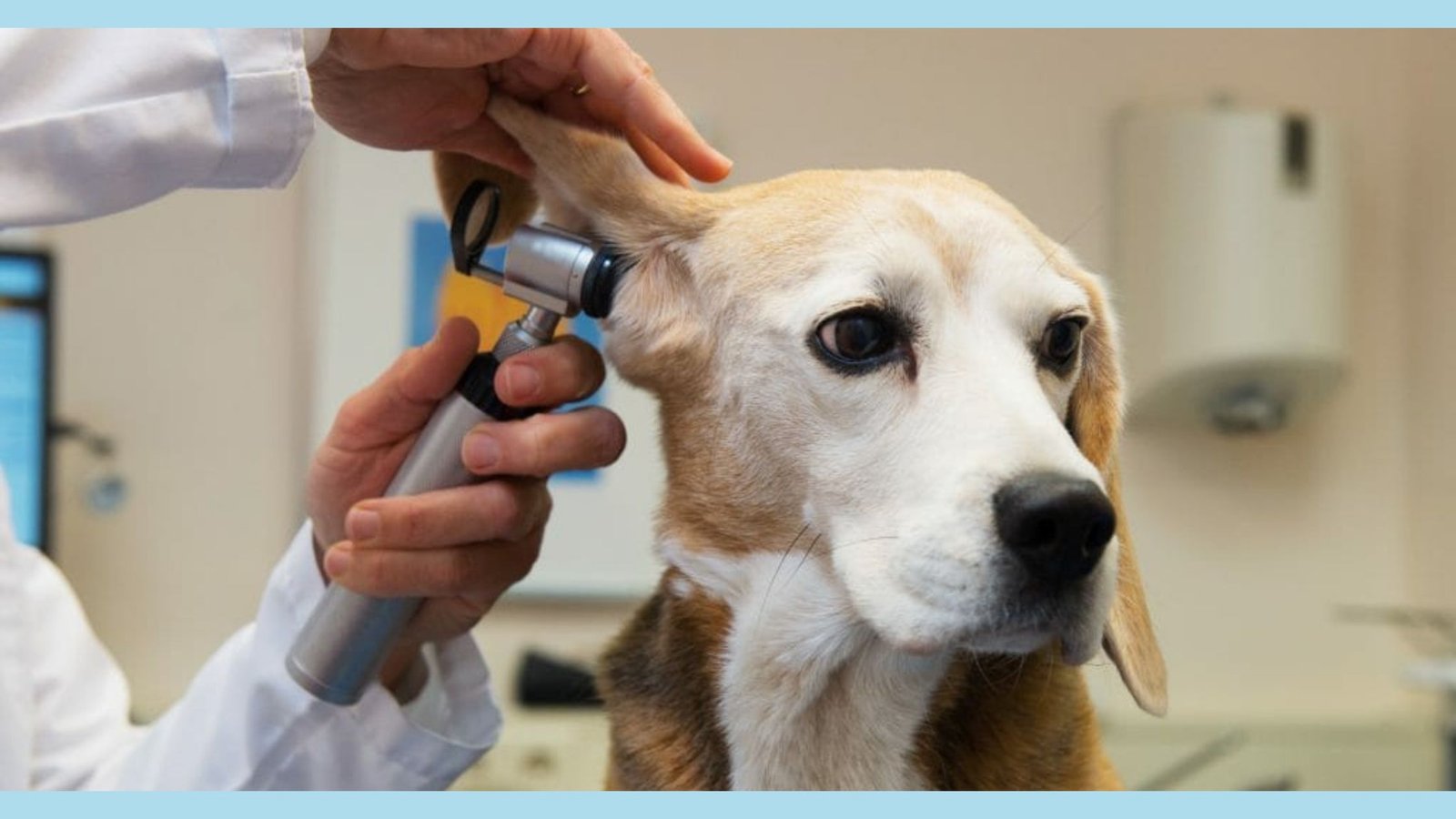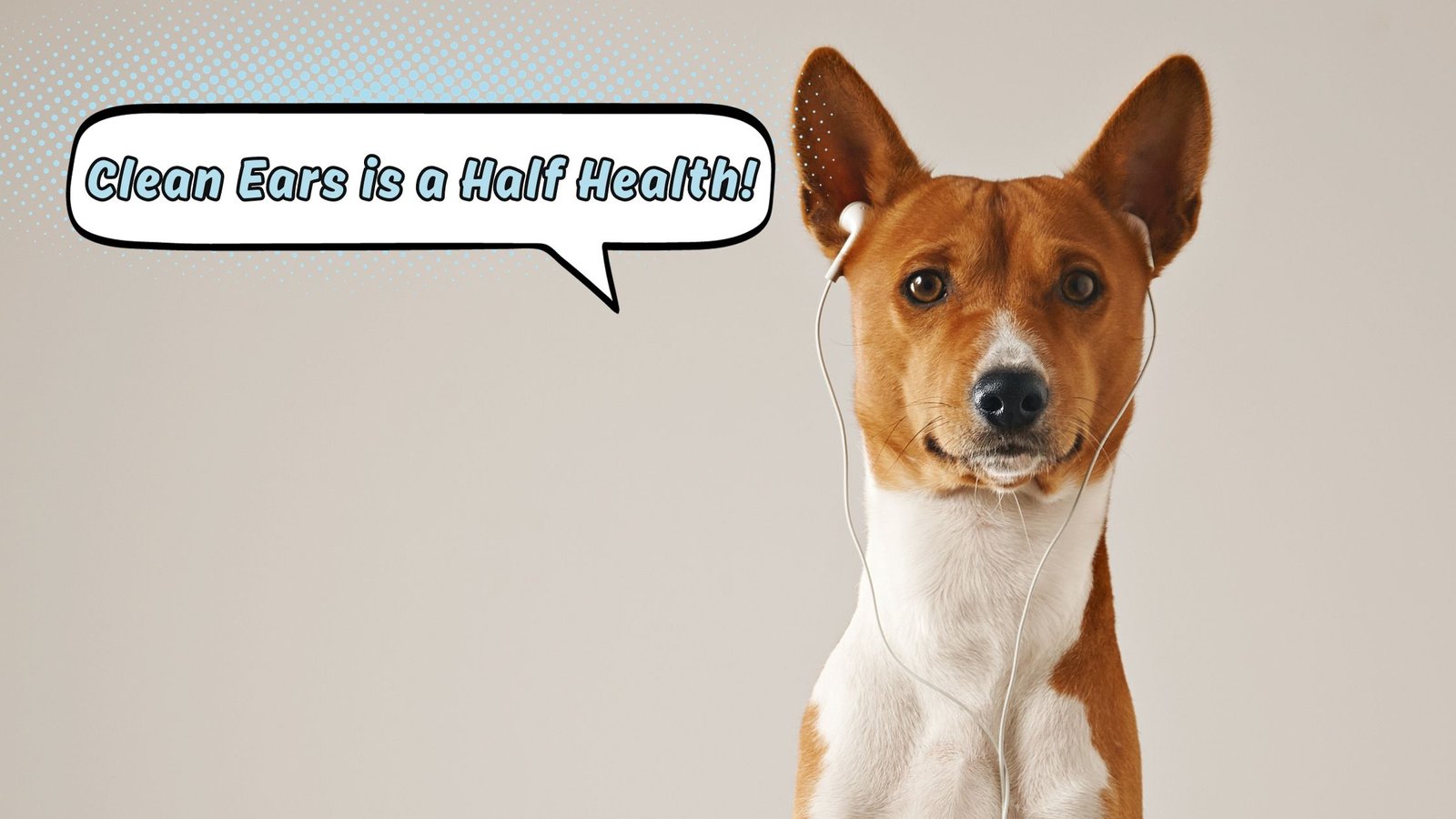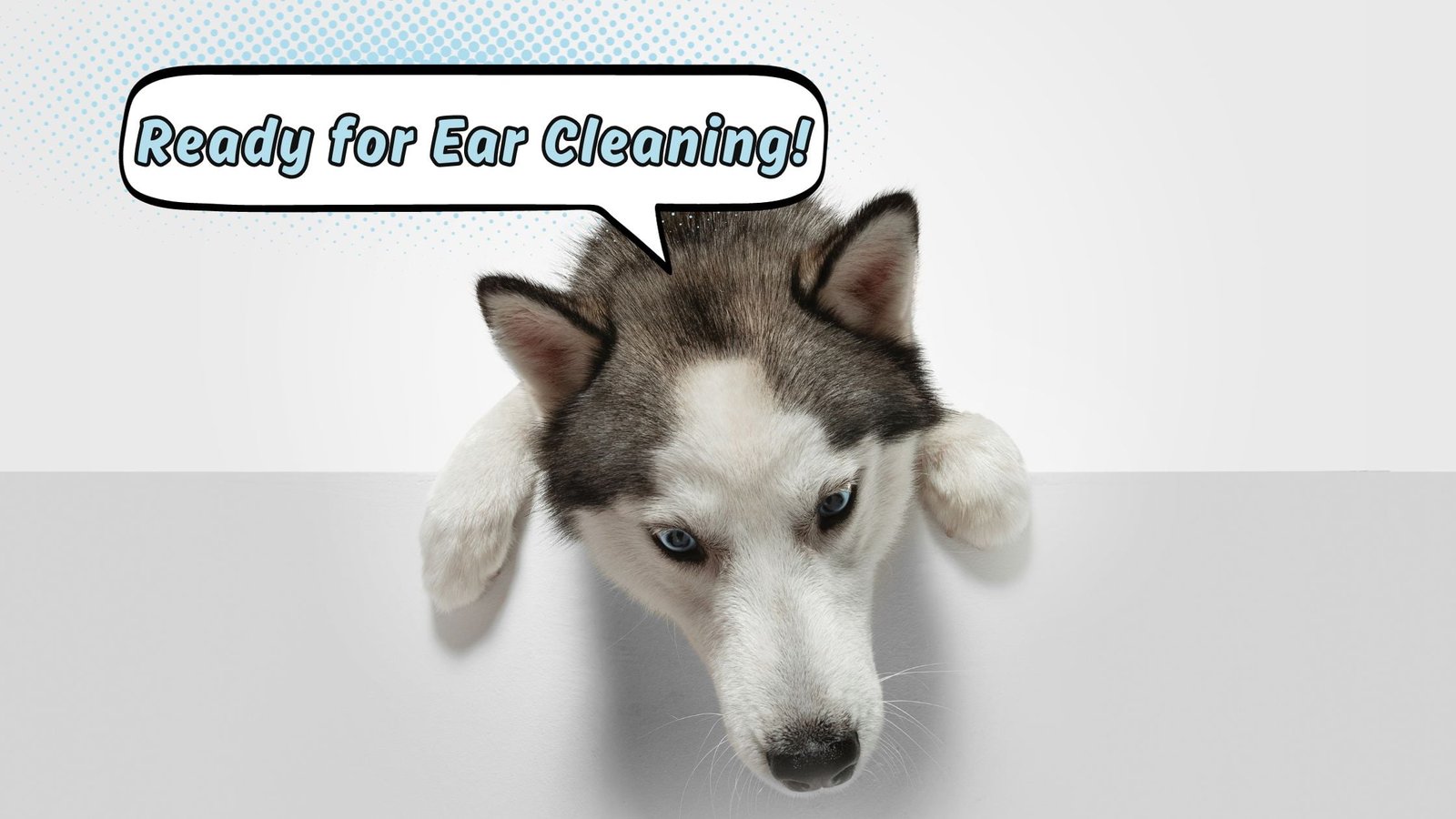Recently, there has been a significant increase in the occurrence of ear infection among dogs all over the world. The veterinarians are in awe, why they are having more cases than usual to deal with. Most of the dogs having this infection present with dark brown or black discharge in their ears. This clearly indicates an ongoing problem that needs immediate attention.

HOW TO PREVENT AND TREAT EAR INFECTION IN DOGS
This article seeks to find out what causes ear infections in dogs. The other section is to discover the best prevention methods if possible and treatment if this infection already showed up. See what is best for your pet’s ear health.
Causes of Ear Infections in Dogs
There are many factors that may lead a dog to have an ear infection:
- Ear Structure: Dogs have an unusual ear anatomy that predisposes them to these kinds of infections. The canals are long and narrow which makes it easy for bacteria, yeasts and other microorganisms to multiply.
- Moisture/Humidity: Too much moisture or humidity can be a good environment for germs in your pet’s ear. This may happen when they swim, take a bath or just live in damp places altogether.
- Allergies: Allergies will result in inflammation of the ears thus increasing chances for secondary infections in dogs. This can happen either from food substances directly or environmental factors as well.
- Ear Trauma: This is another possible cause where wounds occur on their ears following scratches due to itching too much. Among other injuries caused by foreign bodies getting stuck inside the ear canal introducing bacteria which eventually leads into an infection’s development.

PREVENTING EAR INFECTION IN DOGS
Although there can be breeds or structure of dogs that are more prone to ear infections than others, steps can however be taken so as to reduce the risk.
Regular Ear Cleaning
If you clean your dog’s ears on a regular basis it will help to remove any extra wax and dirt that might cause an infection. However, you should always be careful when doing this so that you don’t end up causing more harm than good. Therefore, consult your vet on the best way to clean them.
Drying the Ears
Make sure that you dry out your dog’s ears completely after they have been swimming or bathing. Use a clean towel or a low heat drying machine set at its lowest point so as not to leave any moisture in the ear canal.
Avoid Irritants
Keep off things likely to cause allergic reactions or inflammation in your pet. Certain cleaning agents, perfumes and pollen grains are some of the things that can lead to such symptoms. If you suspect that your dog might be allergic to any of the above mentioned items then contact a veterinary officer for advice on how best they should be managed.
Regular Veterinary Check-ups
Your dog should be checked regularly by a vet this will help in early detection of ear infections. This is important because the underlying problems could also show signs during these visits. More preventive measures for your dog may also be suggested by the vet.

TREATING EAR INFECTION IN DOGS
If a dog gets an ear infection, it is important to seek medical attention for proper diagnosis and treatment. Any of the following may be prescribed by your vet depending on how severe or what caused the infection:
Medication
Topical or oral drugs meant to fight off the infection could be given. For pain relief and inflammation reduction, antibiotics, antifungal medications – such as miconazole or ketoconazole cream applied into the affected ear(s) – might also help.
Ear Flush
In some cases, a veterinarian may decide to conduct an ear flush so as to remove debris and infectious materials from the ear canal. This procedure is usually done when the dog is sedated in order to enhance comfort.
Pain Management
If the symptoms of ear infection are causing pain or discomfort, your vet could prescribe some painkillers that will help ease these pains while the condition is clearing up.
Follow-up Care to prevent New Ear Infection in your dogs
It is important for you to adhere to the medication administration directives given by the vet and also attend any recommended follow-up appointments. Failure to do this may lead to incomplete treatment of the disease or even its recurrence.
Ear infections are quite common in dogs and can be very irritating. However, with right preventive measures taken on time, you will be able to maintain your dog’s ears healthy and free from such infections.
Regular cleaning, drying, as well as keeping away from irritants are key prevention tips whereas seeking for veterinary services and adhering to their advice plays a big role in treatment success. You need to prioritize the health of your dog’s ears if you want them happy overall.

FOLLOW-UP CARE AFTER EAR INFECTION IN DOGS
When dogs we treasure undergo ear infections, much care should be taken and all the instructions of the vet followed carefully. This will include giving the dog medicine as prescribed and doing some other things to ensure the disease does not repeat itself again in future after it has been fully treated.
Administer Medication as Directed
Among the numerous important considerations in caring for a dog following an ear infection is to give the prescribed drugs as advised by the specialist. This could be ear drops, oral antibiotics, or anti-inflammatory medicines. The recommended dosage and frequency must be adhered to so that the infection can be effectively fought against and any discomfort or pain relieved.
Keep the Ears Clean
Failure to keep the ears clean might result in dogs experiencing repeated cases of ear infections. After a consultation with the veterinary officer, it is vital to regularly clean the ears of the dog so as to remove any excessive wax or dirt. Nonetheless, it should be noted that not all dogs need routine ear cleansing while excess cleaning may interfere with the natural balance of the ear canal. It is therefore recommended that one seeks guidance from their vet about how often this should be done basing on their specific pet’s requirements.
Monitor for Signs of Improvement
During treatment with the drugs, the condition of the patient should be frequently checked for any positive changes. These may include reduction in redness, swelling, discharge among other symptoms associated with ear disease in dogs. In case there is no change noticed within few days then it would call for an immediate action to seek further assistance from a veterinarian.
Prevent Exposure to Irritants
To ensure full recovery and avoid recurrence of such infections in future, one must keep off potential sources of irritation from their dogs’ environment. This could mean staying away from dusty places; drying off the pet’s ears after swimming or bathing them as well as preventing contact with allergens that might lead to allergic reactions. These precautions will help reduce chances of reinfection while maintaining good ear health for your pet.
Maintain a Healthy Diet and Lifestyle
Is there any way that a healthy diet and lifestyle prevent ear infections in dogs?
It is very possible. It is because when you give your dog food with all nutrients present then its immune system becomes strong making it difficult for infections to affect it.
How should ear infections in dogs be prevented?
You should also know that if you want to prevent the sickness more often you need to do physical exercises with your pet regularly and engage it mentally so that its overall well-being can be enhanced.
Attend Follow-up Appointments
Does a vet have to see my dog again after treating the ear infection?
Yes, without fail. You need to make sure that you visit him most frequently with the dog until the condition is completely cured.
What are these appointments for?
The checkup is mainly done so as to monitor his progress and confirm if indeed there was total healing of the ears from inside out thus preventing any future occurrences which might be worse than before.
Seek Veterinary Advice for Recurring Ear Infection in Your Dogs
When should I consult a vet concerning recurrent ear infections for my dog?
Any time they come about more than thrice in six months period.
Is there any reason why they keep on happening over and over again?
Yes, there is a bigger problem deep inside them which needs immediate attention. Hormonal imbalances due to abnormality in anatomy or even allergic reactions towards something within their environment where we live with them daily.
Therefore, always give your dog time to rest and self-medicate too when necessary. By sharing some basic tips like cleaning up their ears after bathing them. If not sure what should be done then don’t hesitate contacting a vet for more advice. Clarification on issues concerning pet health care is important because our pets deserve nothing less than best from us.

NATURAL REMEDIES FOR EAR INFECTION TREATMENT IN DOGS AND ALTERNATIVE METHODS
Ear infections are a common ailment in dogs which many of them come across during their lifetime. These infections may be discomforting and painful for our furry friends. That’s why it is necessary that we take care of them so as to reduce their suffering. While traditional veterinarian medicine provides effective treatments, there has been growing interest towards natural remedies. Alternative therapies for curing ear infections in canines are also discussed by the vets. Below are some holistic approaches that could promote general wellness of our pets.
Regular Cleaning of Ears
Prevention is better than cure for ear infections in dogs. Regular cleaning helps to do away with dirt, debris and excess wax that may lead to developing such infections. You can use a soft ear cleaner made specifically for dogs. Cotton balls can be used when wiping off the outer part of the ear. Take care not go deep into dog’s ear canal as it could cause injuries. Keeping it clean often maintains its natural balance thus lowering chances of getting infected.
Probiotics
Probiotics refer to helpful bacteria which ensure the body stays healthy. They are able to enhance immune system thereby curbing growth of harmful germs inside ears. Introducing your dog’s diet with probiotics either through supplements or food rich in these microorganisms like yogurt. They will improve their general health by cutting down on cases of ear infections. Consultation about probiotic strain suitable for pet and its dosage should be done from a veterinary doctor.
Herbal Remedies
Dogs can be treated for ear infections using several herbal remedies. These alternatives help in reducing inflammation, soothing irritation, and aiding the healing process. They should be used for same infection or a previous one that left the dog with scars in its ears.
Such medicinal plants include:
- Calendula: It is known to have anti-inflammatory as well as antimicrobial properties. It reduces redness and swelling within affected areas like the ear canal walls.
- Chamomile: This herb has calming effects too, besides being able to soothe itchiness. Can relieve discomfort due to an infection such asthat. This occurs when water gets trapped in dogs’ ears during swimming exercises.
- Tea Tree Oil: The natural antiseptic. This particular oil fight off bacteria plus fungi typically responsible for causing these infections hence its significance. Nonetheless, one must ensure proper dilution before applying since concentrated levels may turn out toxic upon absorption.
However, before you start using any of these herbs on your dog, make sure you talk with a holistic vet. It’s best to ask to advise you accordingly based on the safety and dosage to be observed.
Acupuncture
Acupuncture is an old tradition where fine needles are inserted at certain points on the body with belief that it aids in overall well-being by prompting general healing processes . For dogs with chronic ear infections, acupuncture can help reduce inflammation, relieve pain and restore balance to the body. Make sure you find a veterinary who is qualified and adequately experienced in dog acupuncture therapy.
Dietary Adjustments
Diet plays a crucial role in maintaining a dog’s overall health and immune system function. Making dietary adjustments can be beneficial for dogs prone to ear infections. Consider feeding a high-quality, balanced diet that includes essential nutrients, vitamins, and minerals to support your dog’s immune system. Avoiding common allergens, such as grains and certain proteins, may also help reduce the risk of ear infections in dogs with food sensitivities.
Stress Reduction
Stress can weaken the immune system and make dogs more susceptible to infections, including ear infections. Providing a stress-free environment and engaging in activities that promote relaxation can be beneficial for dogs prone to ear issues. Regular exercise, mental stimulation, and creating a calm and peaceful living space can help reduce stress levels. This will support your dog’s overall well-being as well.
Quick Summary On Ear Infection In Dogs
While conventional veterinary medicine offers effective treatments for ear infections in dogs, exploring natural remedies and alternative practices can provide additional support for our furry friends’ well-being.
Regular ear cleaning, probiotics, herbal remedies, acupuncture, dietary adjustments, and stress reduction techniques are all holistic approaches that can contribute to the prevention and treatment of ear infections.
It is important to work closely with a holistic veterinarian to determine the most appropriate and safe options for your dog. By combining conventional and alternative practices, we can ensure that our best furry friends receive the comprehensive care they deserve.
We recommend to continue reading on topic at PetMD by Chewy









